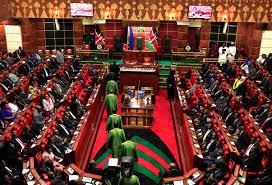
Recently, the 12th parliament passed the controversial ICT Practitioners Bill 2020 before closure of its business. The bill was first tabled in parliament in 2016 by the then majority leader, Hon Aden Duale. The bill required all ICT Practitioners be licensed and registered by a council body. It also placed the degree requirement for every practitioner and fines and jail terms for those who failed to comply. The bill was however shot down.
2 years later, in 2018, the bill was again tabled in parliament by Hon Godfrey Osotsi but was shot down once more.
That notwithstanding, the bill was reintroduced to parliament in 2020 with specific amendments that removed the degree requirement, jail terms and fines for practitioners failing to register. This time in a sleepy parliamentary session, the bill was quietly passed and awaits the presidential assent.

The amended bill, 2020, proposes that any ICT practitioner is to be registered by an institute council. The practitioner shall pay a registration fee upon registration and shall be given a license valid for one year. The license may be renewed yearly but at a stipulated fee.
These are the key contentious issues to this bill which has been met by opposition from various stakeholders, experts and even the general public. However, though the bill has generated outrage, there has been a significant support to it. In 2016, the secretary general of the ICT Association of Kenya (ICTAK) released a statement supporting the bill.
The standard arguments of proponents of the bill is that the ICT space needs a regulatory body that will ensure standards of competence and eliminate ‘quacks’ in the field.
Recently, CS Joe Mucheru took to social media to disown the controversial bill and reinstated that he will continue to protect the ICT sector in the country.
The president should not assent to the bill since there are many grey areas in it. For example, what mechanism will the supposed ‘Institute Council’ use to determine who is an ICT practitioner for whom will be granted registration. Also the registration and license fees that will be paid will become a huge burden to those venturing into the ICT space. The Cyber Crimes Act and Computer Misuse Act are already in place to regulate the use of technology in Kenya.
Given the comical 2-year march of the bill, all eyes are now set on President Uhuru Kenyatta as the bill waits for his assent into law.
Compiled by Kevin Boriga
